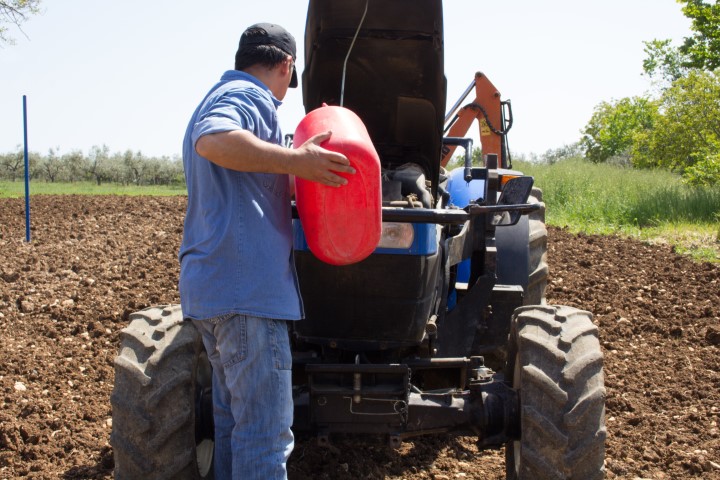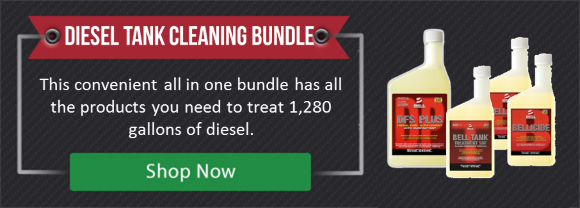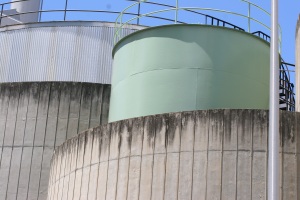Storing Fuel Long Term
What kind of things make fuels like biodiesel or diesel or ethanol go bad? What’s the best way to protect the investment made in these fuels?

Fuel Storage for farms poses some interesting challenges to producers in order to maintain the quality and quantity of their products. Degradation of the quality or composition of stored fuel due to contamination or deterioration create a great deal of aggravation for farmers. With fuel costs pushing $3-4 a gallon, this is no longer a secondary concern for farmers and growers, but represents a sizeable potential loss.
The most common fuel contaminants are water, sediment and rust. The major contaminant of stored fuel is water, which can enter the system through leaks, condensation, from the fuel supplier or through vandalism. Minimal amounts of water from condensation in underground and above ground gasoline tanks can be dealt with by adding a water controlling and removing additive like Bell Performance Mix-I-Go or DFS Plus. In diesel tanks, the use of Bell Performance Dee-Zol with the addition of DFS Plus in heavier water contamination is recommended.
If a large amount of water is found in the fuel tank, the only alternative may be to have the water pumped out. Determining how the water entered the tank is important to prevent further contamination. In overhead tanks, water can be drained by removing the drain plug on the bottom of the tank. This is best done when the tank is almost empty. Water buildup can be controlled by regular use of Bell Performance Mix-I-Go or Dee-Zol products.
Common sediments in the fuel tank are small particles of rust caused by water contamination. Other sediments are formed when fuels stored for a long period begin to break down through exposure to air and water. Sediments can cause fuel filter plugging, engine deposits, gumming and lacquering which leads to component sticking and engine wear. This is all bad news with equipment downtime and aggravation the inevitable result.
Don't Miss the Companion Post: Fuel Storage for Farms Part Two

What kind of things make fuels like biodiesel or diesel or ethanol go bad? What’s the best way to protect the investment made in these fuels?
It's not just ethanol in gas that's been changing the fuel landscape and causing unexpected problems. Now that ultra-low sulfur diesel fuel has been...
Maintaining today's stored backup fuels is a bigger job than it used to be. One major reason is that fuels themselves have changed. Ultra-low sulfur...